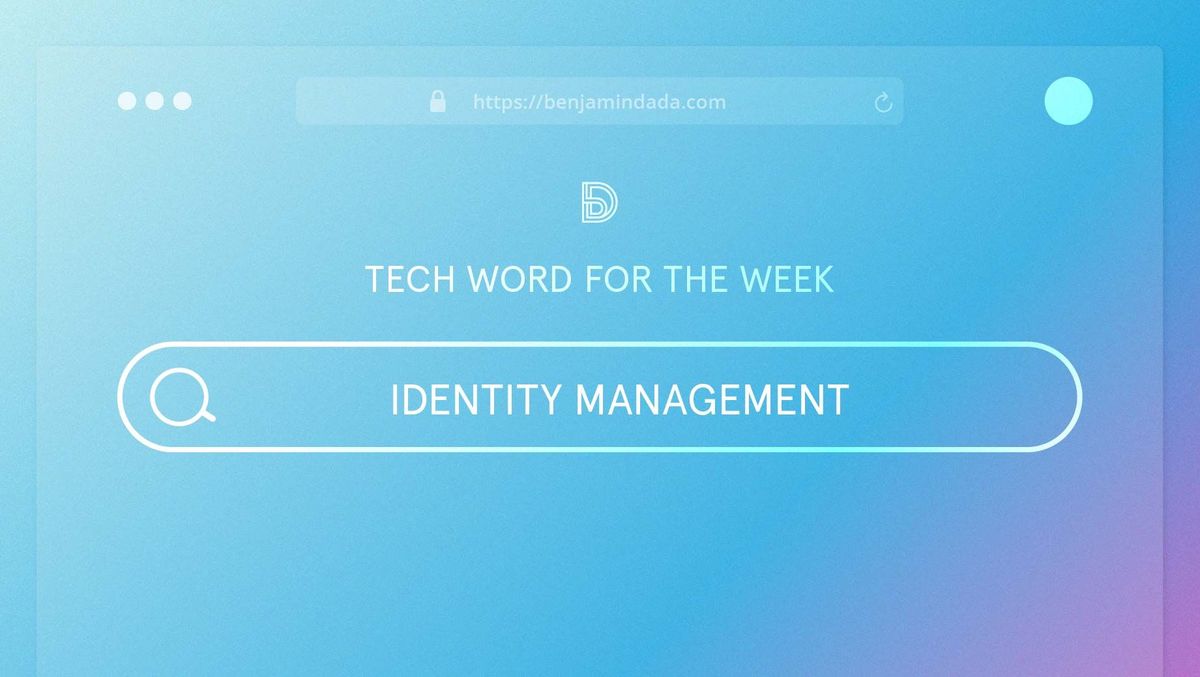Tech Word For The Week: Identity Management
Identity Management is the management of a technology resource(s) to ensure that only verified and authorised people have access to it to be able to carry out their job functions.

Tech Word For The Week is a weekly series where we look to explain commonly used words in the tech ecosystem in a simple, engaging way.
If you own a storehouse filled with treasures, precious stones and hard-earned riches, will you leave the doors open when you are going out of town? Of course not. Doing that will be digital suicide. Reason demands that you secure your wealth by locking the doors and deploying all necessary security measures.
Organisations can’t afford to let their guards down in a world full of computer hackers who are lurking around to feast on your digital data and information. There is also the issue of data theft and data mishandling by naive or negligent employees. To forestall these occurrences, the best defence is to secure the service of an identity management provider.
In this week’s edition of Tech Word for the Week, we are going to spill the beans on the word “Identity Management,” the problems it solves and the business benefits of identity management. Let’s dive in.
What is Identity Management
Identity Management is the management of a technology resource(s) to ensure that only verified and authorised people have access to it to be able to carry out their job functions. Identity Management is also called Identity and Access Management.
It’s ensuring the right people gain access to the right resource, at the right time and in a secure manner.
To do this, a framework of policies that encompasses the organisational process is instituted. This will ensure proper authorisation and authentication of the identity of the right people, group of people, software applications and network. Identity Management vendors do this by associating user rights and restrictions with established identities.
Identity Management systems can be mobilised as an on-premise software, cloud based tool or hybrid solution depending on the capability and accessibility of the service provider. In terms of implementation scope it can be deployed to guard assets such as people and resources. In some climes, Identity management focuses on authentication of users while access management is focused on authorisation.
It uses a variety of technologies such as biometrics, passwords, multi-factor authentication and other digital solutions to protect identities. To achieve this, identity management software applications and platforms are usually adopted.
Importance of Identity Management
- Identity management systems prevent unauthorised access to systems and data softwares. It prevents the breakaway of enterprise data. When access is breached by unknown personel or programs from inside or outside it raises alarms.
- Not only does Identity Management systems protect software and data access, furthermore, they protect the hardware of an organisation. They shield networks, servers, and storage devices from unauthorised sources which could lead to cyber attack.
- It is important to get an identity management service due to the increase in compliance, governance and global regulations to protect the exposure of sensitive data.
- Identity Management helps to ensure only authorised users have access to specific systems, applications or databases after they are authenticated.
- Identity Management adoption facilitates the automation of access monitoring, management and other multiple layers to the protection of individual and organisation’s digital identity.
Benefits of Identity Management
- Identity Management is a great way for organisations to safeguard their assets from the threats such as phishing, hacking, ransomware, malware attacks, data theft and data mishandling.
- It has a profound effect on the productivity of employees, contractors, and users of the organisation’s resources.
- A boost in productivity will translate to higher returns on investment for the organisation as a whole.
- Deploying an Identity Management framework will also help the organisation to have an enabling platform and capacity to scale. When there’s an upsurge in demand, there’s usually an increase in the risk of digital data theft but that would have been prevented.
- Identity management systems enable organisations to manage multiple users in different situations and computing environments in real time. This will enhance the culture of remote work.
Ending Notes
Identity management is a sure-fire protection for organisations who have sensitive resources and data. To ensure access to these data are only granted to the right people deploying the services of identity management vendors should be a priority..







Comments ()